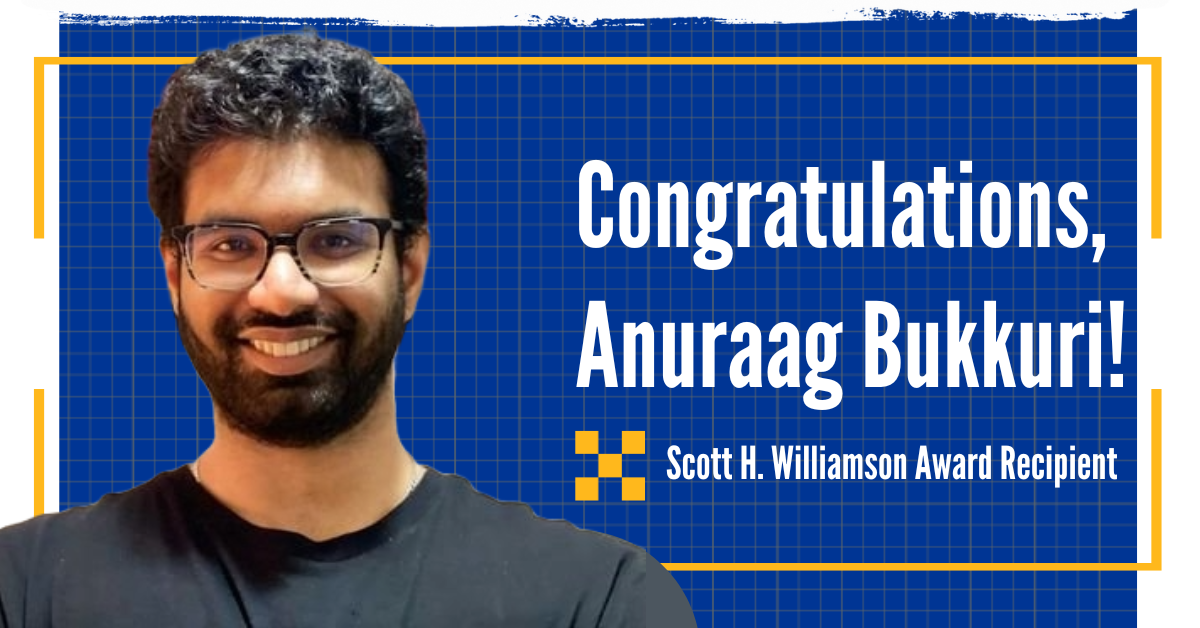Postdoctoral associate Anuraag Bukkuri was recognized with the Scott H. Williamson Award from the Society for Modeling and Theory in Population Biology (SMTPB). This international award honors the achievements and promise of one outstanding early-career researcher in the modeling and theory of population biology per year.
Bukkuri works in the lab of Assistant Professor Wayne Stallaert, where he combines mathematical, computational and experimental approaches to pose and address problems at the interface of cancer and evolutionary biology. He earned his PhD in integrated mathematical oncology from the Moffitt Cancer Center last summer.
“This award is a nice source of inspiration and additional motivation that the work we’re doing in cancer evolution is being recognized in broader, more basic biology communities outside of evolutionary medicine or cancer spaces,” he said.
In recognition of this achievement, the Williamson Award committee wrote, “Dr. Bukkuri’s creative mathematical approaches have significantly contributed to our understanding of cancer evolution, therapeutic resistance, and the complex interplay between ecological and evolutionary dynamics in biological systems.” Bukkuri will present at the SMTPB meeting in June at the National Institute for Theory and Mathematics in Biology in Chicago.
Bukkuri was drawn to cancer research because he wanted to have a real-world impact and combine his interests in mathematics, ecology and evolution. “I think cancer was sort of the perfect combination of that because cancer is fundamentally an eco-evolutionary process,” he said. “I can’t think of a better system to study these questions.”
As he builds his research career, Bukkuri looks forward to applying his theoretical modeling work to the development of new drugs and therapeutic strategies. He is excited at the prospect of moving theory and experimental approaches closer to clinical settings.
His advice to other early-career researchers is to have fun and to not be afraid to pursue various interests.
“I think the more unique perspectives you have, the clearer an impact you will have with your work,” he said.


